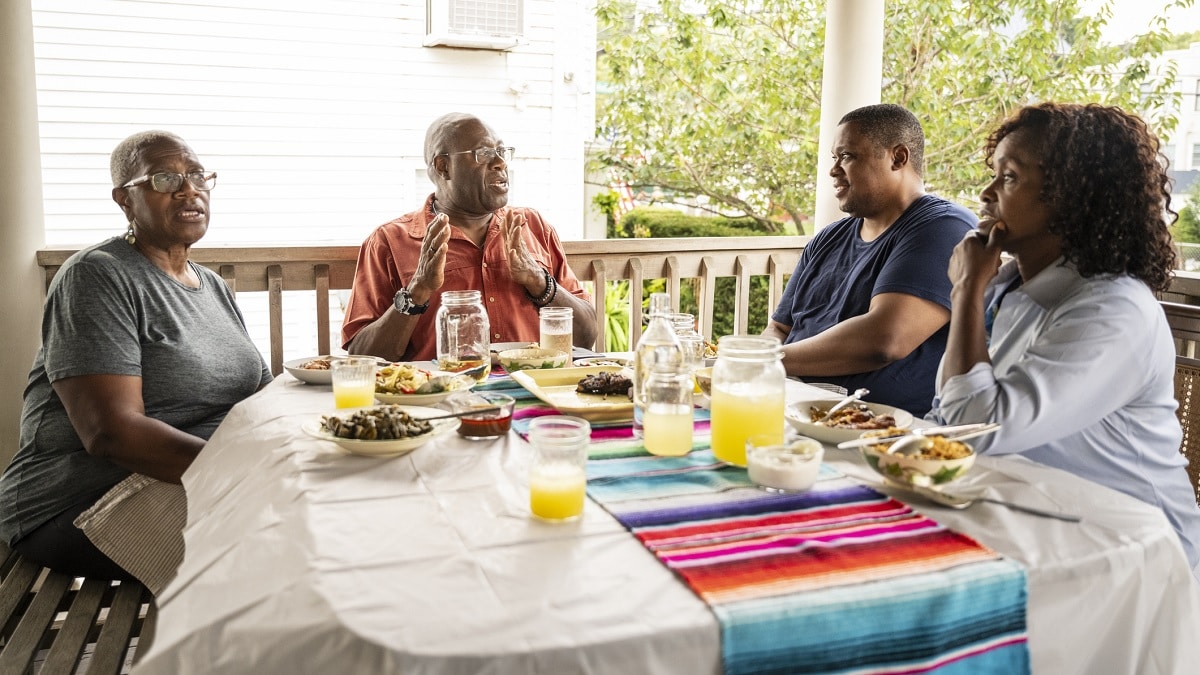Key points
- Tell your family members if you have been diagnosed with Lynch syndrome.
- Talking to family members can help them understand their risk for colorectal (colon), uterine (endometrial), and other cancers.
- Family members who get genetic testing should be tested for the same mutation that you have.

Why talk about it
If you have Lynch syndrome, this information can affect the health of other family members. Other people in your family may also have Lynch syndrome. It's important to share the information you learned from genetic counseling and testing with family members so they can make decisions for their own health.
Explain to your family members:
- Lynch syndrome is passed through families.
- A person with Lynch syndrome is more likely to get colorectal (colon), endometrial (uterine), ovarian, and other cancers.
- Genetic counseling and testing for Lynch syndrome can provide information about their risk.
- If they choose to be tested, they should be tested for the same genetic change that you have.
- They can take steps to prevent colorectal and other cancers or find them early.
Tips for talking to your family
Of all your blood relatives, your parents, siblings, and children are most likely to have Lynch syndrome. Each of them has a 50% chance. Other blood relatives, such as aunts, uncles, nieces, nephews, and cousins, are also more likely to have Lynch syndrome. Your doctor or genetic counselor can help you figure out who in your family might have Lynch syndrome.
Telling your family members about your specific genetic mutation helps their doctors know which test to use.
How do I talk to my children?
If you have Lynch syndrome, each of your children has a 50% chance of also having it. Genetic testing is usually not recommended for children.
Younger children may not understand what your diagnosis means for them. Children differ in the age at which they are ready to learn about this. Answer any questions they ask. They will ask more complex questions as they grow older and are ready to learn more.
What if my family does not want to talk?
Talking to some family members about Lynch syndrome might not be easy. Some may be unsure of why they need to know this information. Others may be nervous about receiving a diagnosis of Lynch syndrome.
Family members need to make their own choices about getting tested, whether or not you agree with their decisions. If family members do not want to discuss Lynch syndrome, respect their wishes. Let them know you are available to talk if they have questions, and let them know where they can find information.
Bring It to the Table: Understanding Your Family’s Cancer Risk
Sometimes the conversations we try to avoid are the most important ones to have. This video explains the importance of talking to your loved ones about your family cancer history.
Resources to share
- Let's Talk: Sharing Info About Your Family Cancer Risk is an interactive tool to help you learn ways to talk about cancer risk with your family members.
- CDC's mobile health app My Family Health Portrait (MFHP): Cancer helps you collect your family's history of cancer and can help you understand your risk for breast, ovarian, and colorectal cancer. Android users can download the app from Google Play and iOS users can download the app from the App Store.
